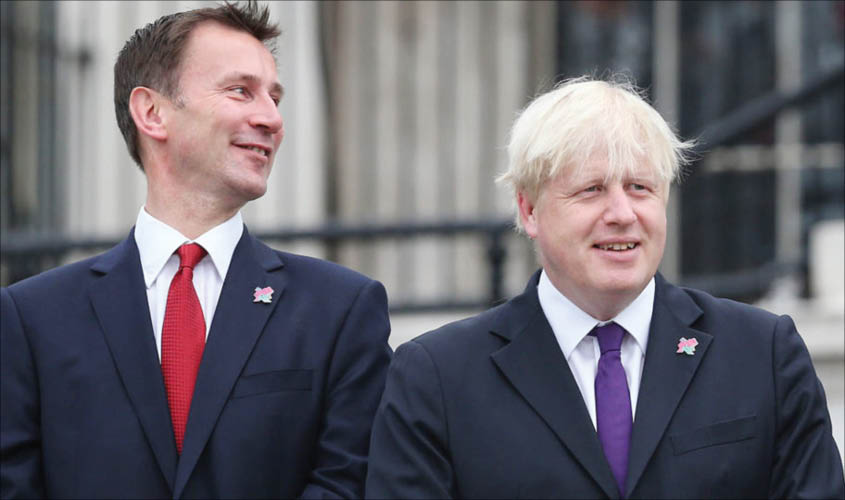Boris Johnson remains in the lead with 160 votes, Jeremy Hunt scored 77 votes; and Michael Gove was eliminated.
The fifth Tory Leadership ballot was concluded in Westminster, leaving the two finalists to begin their nationwide rounds of 16 hustings. Boris Johnson remains in the lead with 160 votes, Jeremy Hunt scored 77 votes; and according to the rules agreed by the 1922 Committee and the Conservative Party Board, Michael Gove was eliminated from the leadership contest with 75 votes. Sajid Javid and Rory Stewart were knocked out in the fourth and third rounds, respectively. It is now over to the Tory Party members to choose their leader. Members can expect their postal ballots to arrive between 6 July and 8 July. All postal ballots must be returned by 18 July. The result is expected on 22 July.
Boris Johnson, former Mayor of London, has the backing of most of the Leaver MPs, a respectable number of Remainers, and more than half of the Conservative MPs. Hunt only had 7 Leavers at the time of writing. It seems the contest is for a definitive Boris Brexit by 31 October or a Hunt diluted/possibly-delayed version. Johnson has said: “We can solve the questions of how to keep goods flowing freely across that NI border whilst the UK comes out of the EU as a whole—during the implementation period—whilst we negotiate the free trade deal.” Johnson is carrying forward his existing record on increasing police on the streets, boosting stop and search powers, boosting funding for secondary school pupils, reducing corporation tax and raising the top rate of income tax threshold from £50K to £80K. Johnson is seen by most people as the only one of the two who can avert the threat of a Labour government and a second referendum. Tom Watson, Deputy Leader of the Labour Party, has said “Labour must take a clear position next week. I think it is in the national interest that we become a pro-Remain pro-Reform party.” Contrarily, 26 Labour MPs wrote to Jeremy Corbyn, urging him not to back a second referendum and to back a deal before 31 October. To put it into perspective: during the 2016 EU Referendum, 148 Labour constituencies voted to Leave and 84 to Remain; 247 Conservative constituencies voted to leave and 80 to Remain.
George Osborne, former Chancellor/Brexit doom-monger, now editor of London’s Evening Standard, has endorsed Johnson as the candidate with the best chance of uniting the Tory party, bringing in the younger voters and restoring the national confidence.
Jeremy Hunt, UK’s current Foreign Secretary, thinks he is a better alternative, says he is fed up with Brexit paralysis and believes he has the best chance of renegotiating the Brexit Deal but is totally against No Deal. Previously, he has run the NHS. He would increase defence spending to counter threats from China and Russia. It is said he is the richest member of the Cabinet as he successfully set up his own businesses and he claims he will turbo-charge the economy; also he is a defender of freedom, human rights and human dignity, who believes he can bring Conservatives together.
The BBC in an apparent attempt to challenge Johnson, invited to the political debate an imam, Abdullah Patel, who asked Johnson if his words had consequences. It was discovered after the debate that Patel had a history of anti-Semitism on social media platforms. Nicky Campbell of the BBC tweeted, “I would like to apologise. We had the Imam from the BBC Tory leadership debate on our programme this morning. His social media comments have been extremely disturbing. We should have checked. We didn’t. I’m sorry.” Sajid Javid, UK Home Minister, suggested that the imam “should practice what he preaches. Words do indeed have consequences. That applies to him as much as it does for leaders in public life.”

